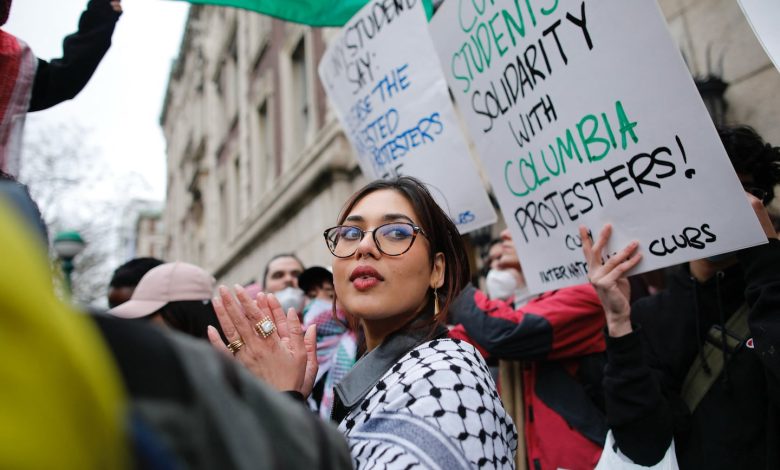How Americans view the conflict in Gaza

It’s worth stepping back from the extreme manifestations of the debate and, instead, considering how Americans broadly view the conflict. Recent polling offers insights: Americans are more likely to say they sympathize with the Israeli people than they are to say the same of the Palestinian people, but they’ve also grown more skeptical of the Israeli military effort. Most Americans say humanitarian aid to Palestinians in Gaza should be maintained or increased; a third say that military aid to Israel should be decreased.
Gallup asked Americans their view of the Israeli action in November and last month. Half of respondents said they supported the action five months ago; now fewer than 4 in 10 do. That support is heavily concentrated among Republicans, two-thirds of whom approve of the military action. Even among Republicans, though, that support has fallen since November.
Meanwhile, polling from YouGov in November and this month shows that support for a cease-fire has increased, albeit subtly. About two-thirds of Americans say they support a cease-fire at least somewhat, and just under half of them strongly support one. More than three-quarters of Democrats say they support a cease-fire at least somewhat; so do a majority of Republicans.
The recent YouGov poll, conducted for the Economist, also asked whether military aid to Israel and humanitarian aid to Palestinians should be increased or decreased. A plurality of respondents said humanitarian aid should be increased; a plurality also said that military aid should be decreased. There’s a wide partisan split here, too, with Republicans diverging from both Democrats and independents in their views.
A CBS News poll conducted by YouGov and published over the weekend considered the question of how the United States should react if Iran struck Israel — which it subsequently did. The poll showed plurality support for standing by Israel without taking direct military action, the position adopted by the Biden administration. Here again Republicans were more aggressive, with a third supporting direct U.S. action against Iran. Only a quarter of respondents overall took that position.
That CBS poll also posed several questions meant to gauge support for possible actions by the U.S. government. Three options had the support of at least 6 in 10 respondents: sending humanitarian aid to Israelis and Palestinians and fostering a diplomatic resolution. Only among Republicans was there more support for providing weapons to Israel than providing humanitarian aid to Palestinians in Gaza.
YouGov polling has also tracked where American sympathies lie in the conflict. Both in October polling, conducted soon after the brutal attack by Hamas that triggered Israel’s military action, and this month, more respondents said they sympathized with Israelis than Palestinians. Since October, though, those sympathies have shifted toward the Palestinians, most significantly among Democrats. Republicans overwhelmingly side with the Israeli people.
When respondents were asked to indicate their level of sympathy for each side, Israelis again engendered more sympathy overall. Democrats were more likely to say they sympathized strongly or at least somewhat with the Palestinian people than they were to say the same of the Israeli people, though three-quarters offered at least some sympathy for the Israeli people. Among Republicans, about half offered at least some sympathy for the Palestinian people.
The partisan divides apparent above are inextricable from what’s unfolding in response to the war. This week, the president of Columbia University appeared before a House Republican-led committee on Capitol Hill focused on antisemitism at the school. When the school subsequently called in police to dislodge pro-Palestinian protesters conducting a sit-in on campus, the political right praised the move.
How the broader public views the conflict and its participants, though, is more nuanced.
Apsny News English
